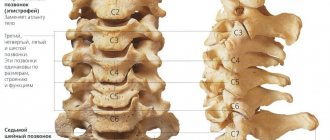Publication date: August 21, 2020
Sometimes, when you have to change your body position, darkening occurs in your eyes. And this is usually associated with various pathologies. Although this phenomenon is not always a danger signal. The eyes also become dark in a healthy person when there is overwork caused by heavy physical exertion or a stressful condition. Often the symptom of darkening in the eyes occurs when standing up. It may recur regularly or may be a one-time occurrence. Darkening in the eyes that appears sporadically does not indicate visual impairment. This is only a short-term deterioration in the perception of the environment. And the exact cause of darkening in the eyes can be determined by a doctor at a medical center by conducting diagnostic examinations.
Why do my vision get dark and my head feel dizzy?
If a person has excellent health, but from time to time his eyes darken, then this symptom is not always associated with any pathologies. Although it is impossible to exclude the disease 100%.
The main factors that lead to darkening of the eyes are:
- Lack of fluid in the body. To avoid health problems, you need to drink at least 2 liters of water every day.
- Prolonged hunger strike. A similar symptom is often observed in people who adhere to a lenten menu or are on a strict diet.
- Age-related changes in the body: menopause, old age, puberty.
- Adherence to bad habits. In this regard, smoking, alcohol abuse and drug use are dangerous.
- Excessive physical activity that is beyond human strength.
- High level of hemoglobin in the blood.
- Lack of vitamins and minerals.
- Diabetes mellitus and other endocrine pathologies.
- The period of bearing a child.
Symptom Description
With a unilateral decrease in visual acuity, which is observed against the background of intraocular hypertension, inflammatory eye disease, hemorrhage in this area, the optic nerve may also be affected. A bilateral process is often associated not with local changes in the eyes, but with a systemic disease (cardiovascular pathology, renal failure, severe blood loss, diabetes mellitus).
Blurred vision may be constant or appear towards the end of the day. Decreased vision can occur both in the central parts and in the periphery.
All this must be taken into account when describing complaints - this will help to quickly understand the diagnosis.
Why does it get dark before your eyes when you get up?
People often notice that their vision becomes dark when they suddenly rise from a place. The main reason for this symptom is a lack of oxygen in tissues and organs. This condition is characterized by the term hypoxia. Lack of oxygen causes orthostatic hypotension, which often develops with heart disease. If your eyes darken when getting out of bed, this may indicate that the person has low blood pressure.
Doctors often hear complaints of darkening of the eyes from patients who take medications such as:
- Vasodilators.
- Diuretics.
- Antidepressants.
With a sharp decrease in blood pressure, a person’s vision will always darken. In this case, symptoms such as:
- Weakness in the body.
- Decreased attention.
- Dyspnea.
- Memory impairment.
Darkening in the eyes should not be ignored. First you need to sit down so as not to get injured. Sometimes the darkness in the eyes goes away after the person calms down. When this phenomenon occurs frequently, you need to go to see a doctor.
It's about the pressure
However, an ophthalmologist is not the specialist who will help solve this problem. Doctors who hear about such a symptom confidently state that there is a problem with blood pressure. Hypotension, which is the culprit of this condition, is low blood pressure, the levels of which do not exceed 100 per 60 mmHg. Art. However, depending on the gender of the person, these indicators may vary slightly. So, for women, hypotension is diagnosed if the systolic pressure figures fluctuate at around 95 mmHg. Art., and for men - up to 100. At the same time, the characteristics of the body of a particular person are also added here.
What to do if your vision suddenly gets dark?
If your vision gets dark and your head begins to feel dizzy, then in order to cope with the attack, you need to follow the following recommendations:
- It is necessary to try to saturate the body with the maximum amount of oxygen. For this purpose, you can go outside, take a comfortable position, and breathe fresh air. If you are in a stuffy room, open the windows. If there are items of clothing on your neck or chest that restrict breathing, you need to get rid of them.
- To avoid falling, you need to sit down or lie down. It’s good if it is possible to raise your legs so that they are higher than your head. This way, blood will flow better to the brain.
- Be sure to use a tonometer and measure your blood pressure.
When a person clearly understands the cause of the attack that occurred, efforts need to be directed towards eliminating it. If a diabetic’s eyes get dark due to hunger, you can drink a glass of sweet water. This measure will increase blood glucose levels and cope with an attack.
If your head is spinning and your eyes are darkening due to prolonged exposure to the sun, then you need to go into the shade or into a cool room.
When the cause cannot be determined and the attack does not go away, an ambulance should be called. Doctors will examine the person and tell you how to cope with the existing problem.
Provided that the attack happened once, you should not panic. However, regularly occurring darkening of the eyes requires seeking medical help.
Where to go and which doctor
If you experience constant dizziness and a feeling of loss of balance, you should seek help from a neurologist. The doctor will determine the reasons for the development of this condition and prescribe the necessary treatment. If during the diagnostic process it turns out that the cause of dizziness and loss of balance is not a neurological disease, the doctor will refer the patient to the appropriate specialist (cardiologist, otolaryngologist, etc.) to eliminate the problem.
The Yusupov Hospital is equipped with the latest technology. The latest equipment from global manufacturers is used here. This allows you to diagnose any disease quickly and in the shortest possible time. Timely diagnosis greatly facilitates the treatment process and eliminates possible complications and unpleasant consequences.
The Yusupov Hospital is located near the center of Moscow and receives patients around the clock. You can make an appointment and get advice from specialists by phone.
What not to do?
If a person does not know the cause of the attack, it is prohibited to take any medications. Otherwise, you may harm your health. You should not make sudden movements, you should not quickly turn your head or tilt it down, as this can lead to a fall. You definitely need to visit a doctor or call a medical team to your home.
Squatting and bending are prohibited. You need to take the most comfortable position possible. You should not start smoking or drinking alcohol after the attack is over.
Reasons you can't ignore
Sometimes a person’s vision becomes dark and dizzy due to various diseases, including:
- Vegetovascular dystonia. The head may not only feel dizzy, but also hurt. Painful sensations are localized in the temples and in the back of the head.
- Cervical osteochondrosis. At the same time, a person’s head becomes dizzy and darkens, most often in the morning and evening. The attack intensifies when turning the head, bending over, or changing body position.
- Migraine. People with migraines experience severe headaches and dizziness, and may experience tinnitus. Patients often complain of increased photosensitivity and nausea.
- Diseases of the inner ear, which may be associated with disturbances in the functioning of the vestibular apparatus.
- Previous injuries to the skull and brain.
- Trinitarian neuralgia. At the same time, the person’s vision becomes dark. Treatment must be immediate, as the disease can cause serious complications. Most often, antibiotics are required.
- Cancerous tumors. Attacks of dizziness and darkening of the eyes will occur on a regular basis.
- Orthostatic hypotension. This pathology is associated with somatic and neurological disorders, which leads to a sharp decrease in blood pressure. The body has difficulty adapting to rapidly developing hypoxia, which leads to an attack of dizziness and darkening of the eyes. Most often this situation happens after a night's rest. The severity of symptoms and their duration may vary. Sometimes patients even faint. In addition, sweating may increase, and pain may occur in the epigastric region. Psychosensory impairment is a severe manifestation of hypotension. The disease requires high-quality therapy.
- Anemia, accompanied by a decrease in the level of hemoglobin in the blood. Normally, the blood contains a large number of red blood cells (erythrocytes), which are responsible for transporting oxygen to tissues and organs. With anemia, the body will suffer from oxygen starvation. First of all, this affects the state of the brain. Therefore, anemia is always accompanied by attacks of dizziness. The patient's skin turns pale and weakness increases. The disease can be triggered by various pathologies of the digestive system, growing tumors, etc.
- People with strokes may develop dizziness and blurred vision. In this case, arteries in the brain rupture, which leads to tissue damage. This condition requires emergency medical care.
- Attacks of dizziness plague patients with cardiovascular diseases, as they always provoke a disruption of blood flow to the brain.
- Hypoglycemia with a drop in blood sugar levels causes a patient with diabetes to become dizzy and have dark vision. In severe cases, the person may even fall into a coma.
- Diseases of the organs of vision. Dizziness often develops with cataracts, as the deterioration of blood flow in the eyeball leads to a disruption in the transmission of information to the brain.
If a person feels dizzy all the time, and also gets dark in the eyes, you need to consult a doctor. Ignoring such symptoms will lead to serious consequences. The doctor will prescribe a comprehensive diagnosis to the patient and then select the necessary treatment.
Mechanism of development of vertigo
If we consider dizziness from an anatomical point of view, the causes of this condition are quite simple. The vestibular apparatus, responsible for human balance and coordination in space, is located in the inner ear. Vision and muscle reflexes help a person navigate the environment. All received information enters the brain. And it is he who controls the functioning of the vestibular apparatus.
Sometimes the connection between the inner ear and the brain can become disrupted. A person loses the ability to navigate in space. Dizziness appears. To restore the lost connection, the brain immediately launches several reactions at once. Some of them may affect neighboring centers (for example, emetic). This leads to the appearance of unpleasant accompanying symptoms.
Diagnostic methods
A person who goes to the doctor with complaints of dizziness and darkening of the eyes needs to be prepared for the fact that he will be prescribed a lot of tests. Only a comprehensive diagnosis will allow us to establish the true cause of the attacks.
Possible diagnostic measures:
- Determination of pressure level.
- Ultrasound of the vessels of the neck and brain.
- MRI of the brain.
- Encephalography.
- Computed tomography of the cervical spine. In addition, this test can detect cancerous tumors.
- Fundus examination, eye pressure measurements.
- Donating blood for general and biochemical analysis. Be sure to determine the level of cholesterol, hormones and hemoglobin in the blood.
- Performing bacterial cultures and blood draws to determine viral and bacterial infections, as they can lead to disruption of brain function.
- Performing neurological tests.
Unsystematic sudden dizziness
About 30% of complaints about dizziness and loss of balance are called false, that is, non-systemic. The sensations are not associated with the development of the disease and can occur in the following situations:
- a sharp change in body position when standing up after prolonged sitting or lying, a sharp turn of the head. The feeling of loss of balance lasts seconds and is associated with the redistribution of blood in the vessels;
- the appearance of feelings of fear or anxiety. Dizziness is caused by a psychological factor;
- overwork, lack of sleep;
- lack of nutrients during an irrational diet;
- dizziness during pregnancy may be associated with the development of anemia, fatigue, changes in the body during pregnancy;
- intoxication with medicinal, alcoholic and narcotic substances causes a feeling of loss of balance and dizziness due to the toxic effect on the vestibular apparatus.
Treatment
Sometimes, in order to get rid of attacks, it is enough to simply change your eating habits, as well as follow a routine and devote a sufficient amount of time to sleep. Although in some cases dizziness is caused by dangerous conditions that require serious treatment.
Drugs that can be prescribed to the patient:
- Antibiotics and anti-inflammatory drugs. They are prescribed to treat otitis media, as well as infections that affect the brain.
- Antidepressants, sedatives and drugs that normalize blood flow. This treatment is indicated for patients with VSD, with surges in blood pressure, as well as for people who have suffered severe stress or are suffering from depression.
- B vitamins, calcium antagonists and drugs that improve brain nutrition. Such drugs are indicated for use by patients with hypoxia and people engaged in heavy mental work.
- Massage, physiotherapy, as well as taking medications that normalize vascular tone are indicated for patients suffering from osteochondrosis or other diseases of the cervical spine.
- Hormones should be taken by patients with disorders of the endocrine system.
- Iron supplements are prescribed to patients with anemia.
The dosage of medications, as well as the duration of the course of treatment, is determined by the doctor, based on the individual characteristics of the course of the disease.
Characteristics of diseases
The consequence of hypotension is a negative effect on brain cells due to oxygen starvation. With this syndrome, blood pressure drops significantly, because of this the brain does not receive enough oxygen and its cells begin to die, which is precisely manifested by darkening of the eyes, as well as headaches and nausea. Like any other serious health problem, this requires a certain course of treatment and a review of the patient’s lifestyle.
Vegetative-vascular dystonia has similar symptoms. The causes here are extensive and require long-term rehabilitation treatment.
If the problem with darkening of the eyes is caused by an infection in the body, the doctor will prescribe antibacterial drugs, which, along with eliminating the infection, will lead to the disappearance of symptoms associated with vision, headache, weakness and lethargy.
Also, darkening in the eyes is included in the primary list of factors that may indicate diseases such as osteochondrosis, various aneurysms, compression of arteries and nerve endings. In such situations, darkening and pain occur only with certain movements and positions of the body or its parts and will most often be the first symptoms of the emerging disease.
The main types of diseases that lead to darkening of the eyes include diseases of the thyroid gland, malfunctions of the heart valves and disruption of metabolic processes in the body. In the case of such problems, the phenomenon will be only one of a whole complex of symptoms.










